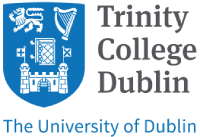Dr H Duncan
No more applications being accepted
Funded PhD Project (Students Worldwide)
About the Project
PhD studentship in Molecular Dental Pulp Biology
The Regenerative Dentistry Research Unit in the Dublin Dental University Hospital, Trinity College Dublin; is an established collaborative research group with interests that cover a wide range of translational regenerative endodontic topics. The pulp biology group, which is led by Dr. Hal Duncan and Honorary Prof. Paul Cooper, currently has a PhD studentship available to commence in March 2018.
Despite recent improvements in the outcome of minimally invasive dental-pulptreatment, existing approaches remain non-specific and unpredictable. Developing biologically-based therapies that promote pulp regeneration is critical. Epigenetic regulation of cell behaviour by DNA-methylation, histone-modification and noncoding RNA expression alter cell-proliferation, mineralisation and stem-cell-fate, thereby offering exciting therapeutic opportunities. Our previous research focused on the influence of histone-acetylation in promoting dental pulp-repair processes and the potential for pharmacological inhibitors (HDACi and DNMTi) to augment this process. Recently, non-coding RNA (microRNAs [miRNA]) has been shown to play an important role in osteoblastic and odontogenic (dental) differentiation, with miRNA expression also altered by epigenetic-modifying agents.
The role of miRNA in promoting dental pulp repair processes
The overall aim of this PhD project is to investigate the epigenetic modulation of dental stem cell responses. This will encompass an analysis of the expression, role and interactions of one group of non-coding RNAs, miRNAs, during dental pulp mineralisation/repair with a view to identifying potential key therapeutic targets for regenerative strategies.
The successful candidate will have a IIi or higher undergraduate degree in Biological science such as immunology, biochemistry or genetics. The studentship will provide an annual stipend of €16,000 and fees will be paid at the EU rate. Interested candidates should email and attach their CV below (including contact details for referees).

 Continue with Facebook
Continue with Facebook

